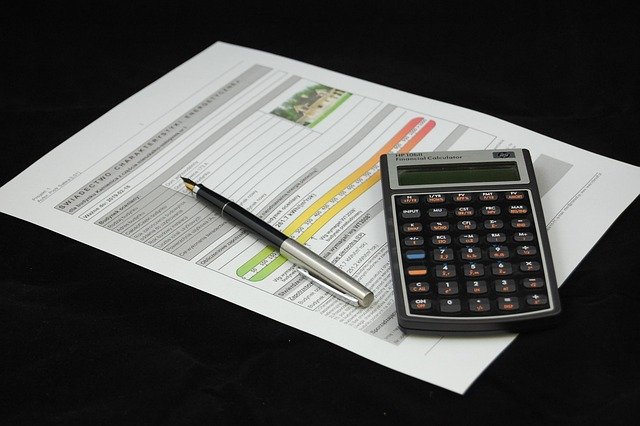Hiring a Tax Accountant to Prepare Your Tax Return: Costs, Benefits, and How to Choose Wisely
Tax season can be overwhelming for many individuals and business owners. The complex tax code, changing regulations, and fear of making costly mistakes lead many to seek professional help. Hiring a tax accountant to prepare your tax return can provide peace of mind and potentially save you money in the long run. This article explores the benefits of professional tax preparation, what it actually costs, how to choose the right professional, and what to prepare before your meeting.

Understanding the Benefits of Professional Tax Preparation
Professional tax preparation offers several advantages that extend beyond simply filing your tax return. Tax accountants stay current with ever-changing tax laws and regulations that affect your financial situation. This expertise means they can identify deductions and credits you might otherwise miss, potentially reducing your tax liability significantly.
Tax professionals also provide protection against audits. Many offer audit assistance or representation if the IRS questions your return. Additionally, professional preparation saves you valuable time—what might take you hours or days to complete can often be handled efficiently by a professional who works with tax forms daily. For business owners and those with complex financial situations (rental properties, investments, self-employment income), professional assistance can be especially valuable in navigating complicated tax scenarios and ensuring compliance.
What Does a Tax Accountant Actually Cost?
The cost of hiring a tax accountant varies based on several factors, including the complexity of your financial situation, the professional’s credentials, geographic location, and the specific services required. Understanding these costs helps you budget appropriately for professional tax assistance.
For basic individual returns with just W-2 income, minimal deductions, and standard forms, you might pay between $150 and $300. Returns of moderate complexity—those including itemized deductions, some investment income, or simple self-employment—typically range from $250 to $450. Complex returns involving multiple income sources, business income, rental properties, or investment transactions can cost anywhere from $500 to over $1,000.
CPAs (Certified Public Accountants) and tax attorneys typically charge more than Enrolled Agents (EAs) or non-credentialed preparers, reflecting their additional education and expertise. Many tax professionals charge by the form rather than hourly, though some complex situations may warrant hourly billing at rates from $100 to $400+ per hour.
| Professional Type | Average Cost for Basic Return | Average Cost for Complex Return | Additional Qualifications |
|---|---|---|---|
| Non-credentialed Tax Preparer | $100-$200 | $250-$450 | Tax preparation experience |
| Enrolled Agent (EA) | $150-$250 | $300-$600 | IRS licensing, continuing education |
| Certified Public Accountant (CPA) | $200-$300 | $400-$1,000+ | State licensing, accounting degree, continuing education |
| Tax Attorney | $300-$400 | $600-$1,500+ | Law degree, specialization in tax law |
Prices, rates, or cost estimates mentioned in this article are based on the latest available information but may change over time. Independent research is advised before making financial decisions.
How to Choose the Right Tax Professional
Selecting the appropriate tax professional requires consideration of your specific needs and careful evaluation of potential accountants. Begin by assessing your tax situation’s complexity—if you have multiple income sources, own a business, or have significant investments, you’ll benefit from someone with specialized expertise in these areas.
Credentials matter when choosing a tax preparer. CPAs have extensive accounting education and must pass rigorous exams. Enrolled Agents are federally licensed tax practitioners who specialize in taxation and can represent taxpayers before the IRS. Tax attorneys have legal expertise particularly valuable for complex tax matters or disputes with tax authorities.
Experience in your specific situation is crucial. Ask potential accountants about their experience with cases similar to yours—whether it’s small business taxes, investment income, expatriate taxes, or other specialized areas. Request references from clients with similar financial profiles.
Interview multiple professionals before deciding. Ask about their approach to potential deductions, availability throughout the year (not just during tax season), and their policy for handling IRS notices or audits. Discuss their fee structure upfront and ensure you’re comfortable with both their expertise and communication style.
What to Prepare Before Meeting Your Tax Accountant
Proper preparation before meeting with your tax accountant streamlines the process and helps ensure nothing is overlooked. Gather all relevant income documents including W-2 forms, 1099 forms (for contract work, interest, dividends, etc.), K-1 forms (for partnership income), and any other income statements. Collect documentation for potential deductions such as mortgage interest statements, property tax records, charitable donation receipts, medical expenses, education expenses, and business-related expenses.
Organize your information by category. Many accountants provide checklists to help you prepare—request one if available. Include prior year tax returns, especially if this is your first visit to this particular accountant. For business owners, bring profit and loss statements, balance sheets, asset purchase information, and details about business expenses.
Prepare a list of questions and financial changes that occurred during the tax year—major life events like marriage, divorce, buying a home, starting a business, or having children can significantly impact your tax situation. Lastly, share your financial goals with your accountant, as they can often provide valuable planning advice beyond simple tax preparation.
Conclusion
Hiring a tax accountant represents an investment that can yield significant returns through proper tax planning, maximized deductions, and peace of mind. When evaluating the cost, consider not just the fee but the potential tax savings and time saved. By understanding the benefits, costs involved, how to select the right professional, and how to prepare for your meeting, you’ll be well-positioned to make the most of professional tax services and ensure your financial interests are properly represented.




